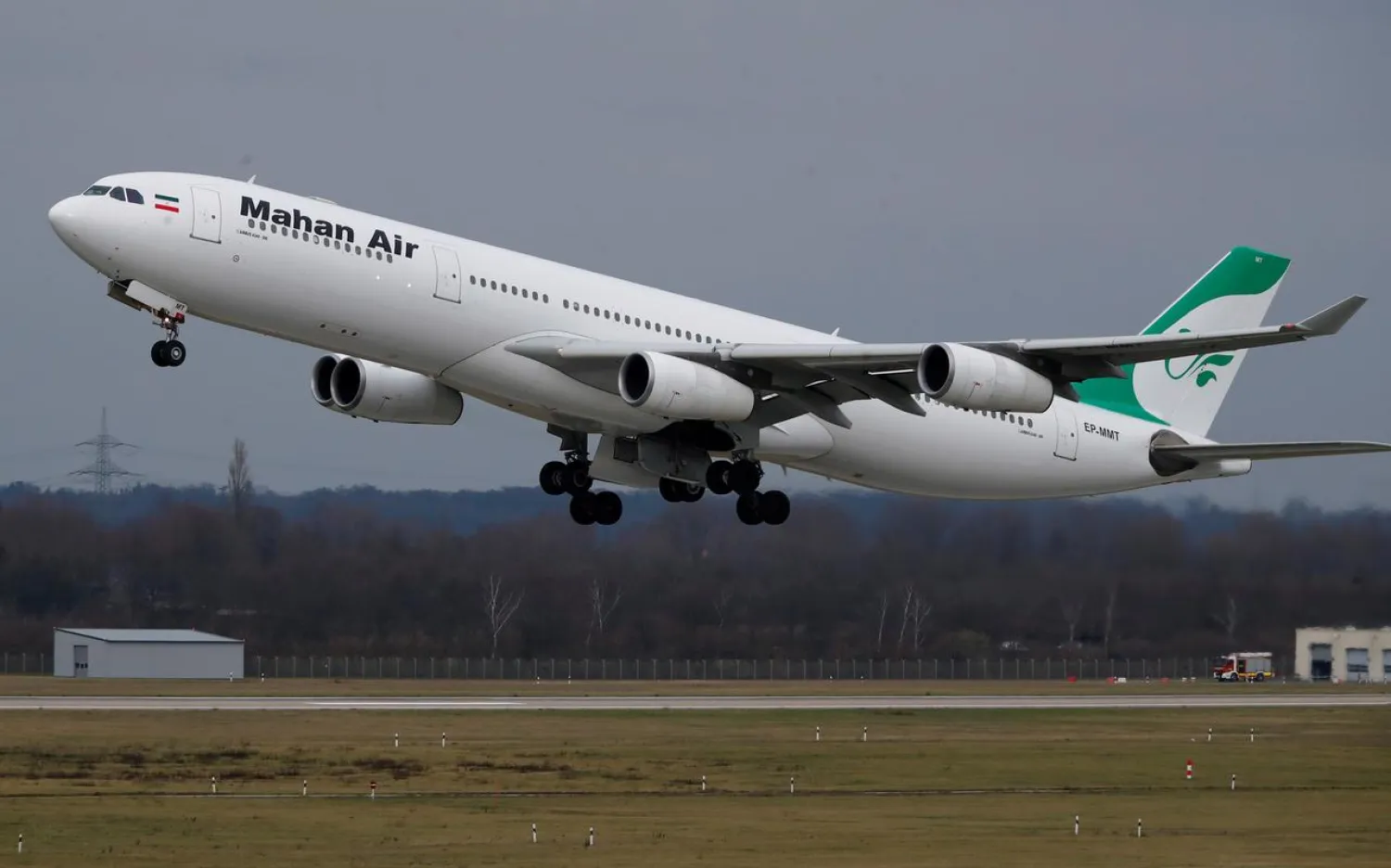An Iranian airline fuelled the Middle East's coronavirus crisis by flying infected passengers into Lebanon and Iraq and continuing flights to China, found an investigation by BBC News Arabic.
Mahan Air, a private company linked to the Revolutionary Guard Corps (IRGC), is accused of lying about these passenger flights after Tehran barred all flights to China on January 31.
Arrival and departure data from Tehran's Imam Khomeini and Chinese airports shows that flights continued for another full week and into March, said the report.
One flight, a repatriation effort carried out for the government on February 6, brought 70 Iranian students living in Wuhan back to Tehran before flying to Baghdad the same day.
China's ambassador to Iran, Chang Hua, posed for a tweet with Mahan Air CEO Hamid Arabnejad on February 2 and noted that the boss had told him he wanted to keep working with China.
Two days later the semiofficial Iranian Students' News Agency slammed the ongoing flights.
Mahan Air then claimed it had ended all flights from China on February 5, but travel to four major hubs (Beijing, Shanghai, Guangzhou, and Shenzhen) continued for another 55 times to February 23, Flightradar data showed.
And on March 4, two weeks after Iran officially recorded its first deaths from COVID-19, Mahan Air was still flying to these Chinese cities, ForeignPolicy.com reported.
The BBC's investigation found that the first cases in Lebanon and Iraq came from Mahan Air flights.
Jets landing in Tehran from China also made onward travel within 24 hours to Barcelona, Dubai, Kuala Lumpur and Istanbul.
Sources within Mahan Air told the BBC that cabin crew were kept quiet by the airline when they tried to raise concerns about the handling of the contagion and a lack of PPE.
The airline claimed it had only flown cargo planes with humanitarian aid to China and that all of its passengers flights were grounded. However, the data shows these were passenger not cargo flights.
Furthermore, Iran's severe lack of PPE and medical equipment makes it seem even more unlikely that it would fly humanitarian cargo to China. Indeed, by late March Beijing had sent medics to Iran to help with the crisis.
Tehran had downplayed reports of the virus and President Hassan Rouhani has said February 19 was the first time the government knew coronavirus was in the country.
However, at least one leaked dossier purports to refer to cases in Qom in January, but social distancing measures were not put in place until after the February 21 general election.
Qom, the epicenter for the disease in Iran, is suspected of becoming the ground zero due to Chinese students who attend the university in the city, which has some 400,000 immigrant students.
Mahan Air has refused to comment.
The airline has been sanctioned by Washington for helping to transport IRGC personnel and arms to Bashar Assad in Syria. And more recently it repatriated the body of slain IRGC commander Qassem Soleimani, after he was killed by a US missile outside Baghdad airport in the New Year.
The coronavirus death toll in Iran rose by 74 on Monday to 6,277, while the total number of cases rose to 98,647. The daily death toll has stayed below 100 since mid-April.
Iran was due to open mosques in 132 cities and towns on Monday, Rouhani said on Sunday, part of a broader plan to ease restrictions. It was not immediately clear how many reopened.
The 132 cities and towns were chosen because they were deemed low-risk and have not had new coronavirus infections or deaths for a period of time.









